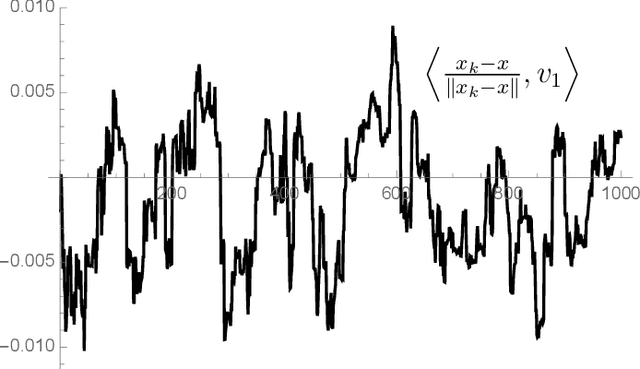On the Regularization Effect of Stochastic Gradient Descent applied to Least Squares
Paper and Code
Sep 01, 2020


We study the behavior of stochastic gradient descent applied to $\|Ax -b \|_2^2 \rightarrow \min$ for invertible $A \in \mathbb{R}^{n \times n}$. We show that there is an explicit constant $c_{A}$ depending (mildly) on $A$ such that $$ \mathbb{E} ~\left\| Ax_{k+1}-b\right\|^2_{2} \leq \left(1 + \frac{c_{A}}{\|A\|_F^2}\right) \left\|A x_k -b \right\|^2_{2} - \frac{2}{\|A\|_F^2} \left\|A^T A (x_k - x)\right\|^2_{2}.$$ This is a curious inequality: the last term has one more matrix applied to the residual $u_k - u$ than the remaining terms: if $x_k - x$ is mainly comprised of large singular vectors, stochastic gradient descent leads to a quick regularization. For symmetric matrices, this inequality has an extension to higher-order Sobolev spaces. This explains a (known) regularization phenomenon: an energy cascade from large singular values to small singular values smoothes.
 Add to Chrome
Add to Chrome Add to Firefox
Add to Firefox Add to Edge
Add to Edge